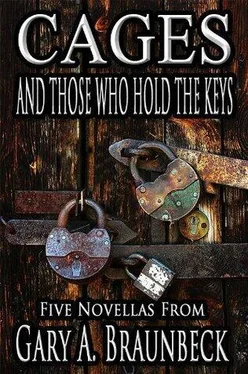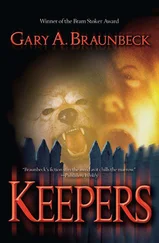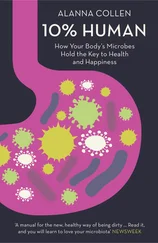She threw down the money on top of the check and left the booth, only to have her vacant seat immediately taken by a man who'd been hovering so close he actually bumped her shoulder as she stood. The woman turned toward him and for the first time Amanda got a look at her eyes: the purest bright azure blue, an early summer sky, the type of eyes heroines in novels and on television always had.
God, those eyes!
On her way out the door Amanda glanced at her reflection in the long mirror behind the bar, noting with pride that she’d looked far worse in her day; her light reddish-brown hair still held its luster from this morning's shower and her face, though plain, yes, was a pleasant one, a compelling one, the face of someone who observed, who listened—and not just to the words that someone might say but to the unspoken meaning beneath those words as well. Hers was the face of a friend on whom you could always depend, one who did not expect to get something in return for her kindness and compassion.
And her eyes...hm, yes, well...not a pure bright azure blue but a striking enough hazel, sparked by a sharpness of intelligence—after all, becoming an insurance actuary (the type of math fool even computer geeks thought of as a nerd) wasn’t exactly easy.
There.
Her silent pep-talk done, she made her way out to her car, feeling content with who and what she was, though no less lonely.
As she slid into the driver's seat her vision blurred. The world washed away like sidewalk chalk drawings under a great and sudden downpour. She blinked once, twice, then uncontrollably, leaning down and pressing her forehead against the steering wheel to kill the dizziness and disorientation. She took several deep breaths. After a few more frenzied, loopy seconds, it passed.
That's when she heard someone screaming.
Loud, ragged, and shrill, the scraped-raw howl of an animal in agony blasted through one of the pub's half-opened windows and latched onto the back of Amanda's neck.
The scream was quickly underscored by several loud, panicky shouts, then the whump-crash! of glasses being smashed, maybe knocked to the floor by some drunk who'd fallen across a table but she knew that wasn't right, knew it as surely as her name because now the underscoring voices and panicky shouts were growing in density and volume and number, nearing hysteria as another, worse scream erupted and the upper half of a figure smashed through one of the windows, a familiar figure, a beautiful figure clutching at her lovely face, hands clawing at bloody, empty eye sockets. The woman screamed a third time, though not as loudly, as someone inside tried to pull her back in. Amanda watched horrified as two men with slashes of blood staining their shirts grabbed the woman's arms, trying to calm her. It did no good. Her pitiful screams quickly faded under the wail of an ambulance siren slicing through the damp night air.
Amanda closed her eyes, offering a silent prayer that the woman would be all right. Maybe she had been arrogant and rude and offensive, but no one deserved the kind of pain that produced a scream like that. No one.
Jesus Christ, what had happened to her?
As the ambulance roared into the parking lot Amanda blinked away a few tears—feeling more than a little guilty for the way she'd judged the woman so harshly—and sat back in the seat, pulling a few tissues from the box on the dashboard and drying her eyes. The police wouldn't be too far behind the ambulance and she was a witness, of sorts, and— —she looked into the rear-view mirror to see if she'd smeared her mascara too badly— —felt strangled by the cry that clogged her throat as she saw her eyes— —so blue so blue so pure bright azure blue, lovely and bright and sparkling in the night— The commotion of the paramedics and the chaotic shuffling of the pub crowd covered the sound of Amanda shrieking into her hands.
2. To Remain?
She had been forced to leave state college one semester into her first year because her father had gotten laid off from the plant and her parents needed her help. Though the letter her mother sent wasn’t obvious in its manipulations, it nonetheless managed to push all the right guilt buttons. Two days after receiving it Amanda withdrew from school and used her last forty-five dollars to buy a bus ticket back to Cedar Hill. It was during the four-hour bus ride that she began to wonder about the price a person paid for so-called "selfless" acts. From the moment she'd stepped into the iron belly of the road lizard her throat had been expanding, then contracting at an alarming rate, finally forcing her to open the window next to her seat so she could breathe easier. Her chest was clogged with anger, sorrow, confusion, and, worst of all, pity. Everyone knew the plant was on its last leg, that the company had been looking for an excuse to pull up stakes ever since that labor riot a few years back, and when it happened, when the plant went down, so would the seven hundred jobs that formed the core of the town's financial stability.
More than anything Amanda didn't, dear God, didn't want to end up like every other girl in town; under- to uneducated, with no dreams left, working nine hours a day in some bakery or laundry or grocery store, then coming home to a husband who didn’t much like her and children who didn’t much respect her, wearing a scarf around her head all the time to cover the premature gray hair, watching prime time soap operas and getting twelve pounds heavier with each passing year.
As she stepped off the bus she promised herself that, regardless of what eventually happened with the plant, she wouldn't betray herself for anyone or anything. That alone was her hope.
“I thank God for a daughter like you,” said her father, embracing her as she stepped through the door. “Come on in and sit down and let your mother fix you up something to eat. It's good to see you, hon. Here, I saved the want ads from the last couple days, maybe you'll find something....”
She wound up taking a cashier job at the town's only all-night grocery store. Amanda smiled at her late-night customers, and spoke with them, and tried to be cheery because there was nothing more depressing than to find yourself in a grocery store buying a loaf of bread at three-thirty in the morning in a town that was dying because the plant was going under and no one wanted to admit it.
Still, Amanda smiled at them with a warmth that she hoped would help, from a heart that was, if it could be said of anyone’s, truly good and sympathetic.
The customers took no notice.
For eleven months she lived in a semi-somnambulistic daze, going to work, coming home, eating something, handing her paycheck over to her parents once a week, then shuffling off to bed where she read until sleep claimed her.
Outside her bedroom window, the soot from the plant’s chimneys became less and less thick but still managed to cover the town in ashes and grayness.
She read books on sociology, countless romance novels and mysteries, biographies of writers and film stars, years-old science magazines, and developed an understanding and love of poetry that had eluded her in high school. Of course she went for a lot of the Romantics, Donne and Keats and Shelley, as well as a few modernists—T.S. Eliot and James Dickey, Rainer Maria Rilke and the lyrical, gloomy Dylan Thomas. Cumulatively, they gave eloquent voice to her silent aches and hidden despairs.
Crime began to spread through the town: holdups, street fights, petty thefts, and acts of vandalism.
And in the center of it all stood the plant, a hulking, roaring dinosaur, fighting desperately against its own extinction as it sank into the tar of progress.
Amanda discovered Jane Eyre in the library one day. Over the next month she read it three times— —and the dinosaur howled in the night— —and her mother at day’s end sat staring at the television or listening to her scratchy old record— —and her father's eyes filled with more fear and shame as he came to realize he was never going to be called back to work— —and somewhere inside Amanda a feeling awakened. She did what she could to squash it but it never really went away.
Читать дальше












